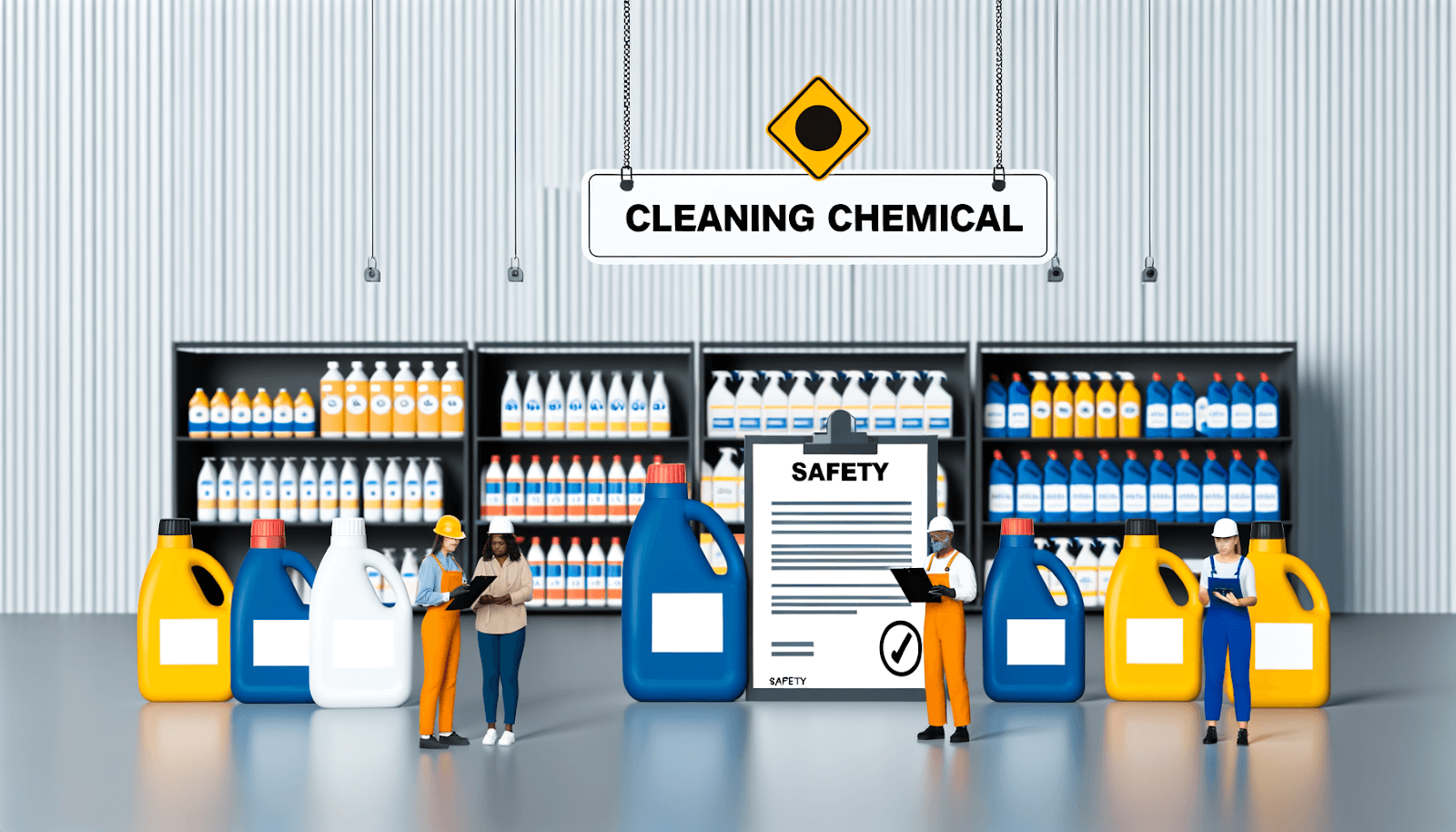
How Cleaning Chemical Distributors Ensure Compliance with Safety Standards
When it comes to cleaning chemical distributors, safety is a top priority for businesses everywhere, and compliance with industry safety standards is non-negotiable. If you're seeking reliable cleaning chemical distributors, understanding how they maintain adherence to local, national, and international safety regulations is crucial. In this comprehensive guide, I'll share how distributors ensure compliance with safety standards and why it's essential for your business.
Understanding the Role of Cleaning Chemical Distributors
Cleaning chemical distributors play a pivotal role in supplying necessary cleaning agents to various industries. They are tasked with ensuring that these products are not only effective but also safe to handle and use. Regulatory bodies set stringent safety standards to protect consumers and the environment from potential hazards associated with chemical use.
Types of Cleaning Chemical Distributors
- Manufacturers: These entities create and produce cleaning chemicals. They usually offer a diverse product range, from everyday cleaners to specialized solutions for industries like food processing and healthcare.
- Distributors: Acting as intermediaries, they source products from manufacturers and supply them to end-users. Their inventory typically includes both general and niche cleaning solutions.
- Custom Manufacturers: These companies cater to specific client requirements by providing bespoke chemical formulations, offering tailored solutions that meet unique business needs.
- Full-Service Companies: Offering more than just chemicals, these distributors provide valuable services like inventory management, JIT delivery, and technical support.
Key Responsibilities in Ensuring Safety Compliance
Regulatory Compliance
Distributors must remain astute in their adherence to safety regulations imposed by bodies such as OSHA (Occupational Safety and Health Administration), EPA (Environmental Protection Agency), and globally recognised GHS (Globally Harmonized System of Classification and Labeling of Chemicals). These regulations ensure the safe production, handling, transportation, and disposal of cleaning chemicals.
Choosing distributors who actively participate in regulatory forums and gain insights into evolving safety standards is essential for compliance. Most reputable distributors will guide you through these regulations, offering proper labeling, Safety Data Sheets (SDS), and compliance assistance to stay within the law and ensure safety.
Quality Assurance and Control
Ensuring product safety begins with quality materials. Distributors must implement stringent QA/QC processes, including the testing of raw materials and adherence to standardised production protocols. Their distribution network should also employ robust batch retention and automated production systems to minimise risks of contamination or defects.
Technical Competency
Technical strength is a hallmark of a dependable distributor, equipped with the know-how for chemical formulation, regulatory compliance, and market analysis. Vendors should provide access to experts ready to offer advice on product applications, safety measures, and troubleshooting common issues, ensuring products are utilised safely and effectively.
Variety in Packaging and Additional Services
Packaging must meet safety standards while also offering practicality. Distributors provide a variety of packaging options—ranging from small, easily handled bottles to bulk tankers—ensuring the safe, manageable, and efficient storage and usage of chemicals. The right packaging prevents spillage and contamination, critical in maintaining safety standards.
Additional services provided by some distributors can significantly streamline your operations:
- Vendor-Managed Inventory: By overseeing your supply levels, distributors help ensure you always have enough stock without surplus waste.
- JIT Delivery: Timely delivery helps minimize storage costs and optimizes efficiency by aligning supply with demand.
- Technical Support and Staff Training: Through guidance on proper use, safety protocols, and regulatory compliance, distributors can train personnel, improving safety and product effectiveness.
- Logistics and Warehousing: Offering logistics services can reduce the burden of storage and transportation while enhancing operational efficiency.
The Impact Across Various Industries
Food Processing and Beverage
These industries rely on distributors who can supply cleaning chemicals that meet stringent food safety criteria. Products provided must be NSF-approved, ensuring they are safe for use in environments where food is processed and prepared.
Healthcare and Fitness
The health sector necessitates premium cleaning products capable of achieving rigorous hygiene standards. Suitably, distributors supply strong disinfectants and sanitizers designed for use in hospitals, clinics, fitness facilities, and schools.
Automotive and Metal Plating
Cleaning chemical distributors support the automotive sector with specific cleaning agents for workshops and service areas, promoting both safety and efficacy. They also cater to the metal plating industry with chemicals designed for precise applications, ensuring safety and quality.
Aerospace and Biomedical
Distributors specialising in aerospace and biomedical cleaning agents provide solutions tailored to sensitive environments where traditional cleaners may pose a risk. Their offerings include non-toxic and non-caustic options that protect delicate surfaces and systems.
Final Thoughts: Ensuring the Selection of a Trusted Distributor
Choosing the right cleaning chemical distributor is a critical decision that reflects on your commitment to safety and efficiency. Partnering with a distributor that prioritises regulatory adherence, quality assurance, and technical competence ensures your business's compliance with safety standards. Furthermore, selecting a distributor aligned with your specific industry needs—backed by robust support services like custom formulations and technical assistance—can elevate your business operations.
Ultimately, prioritising safety in cleaning practices protects not only your immediate work environment but also supports the overall health of your team and clientele, solidifying your business's reputation and operational integrity.
